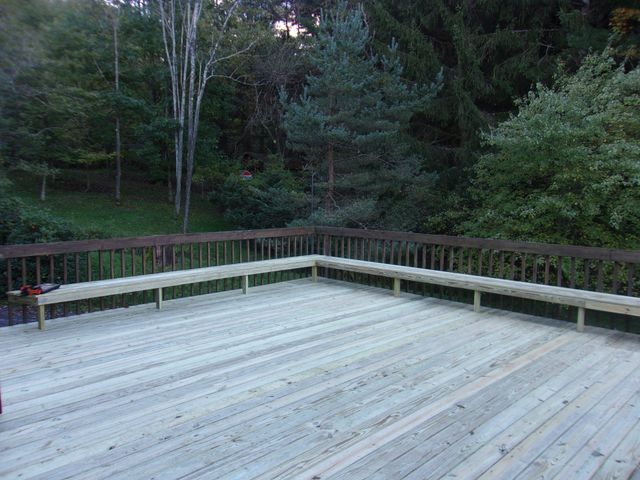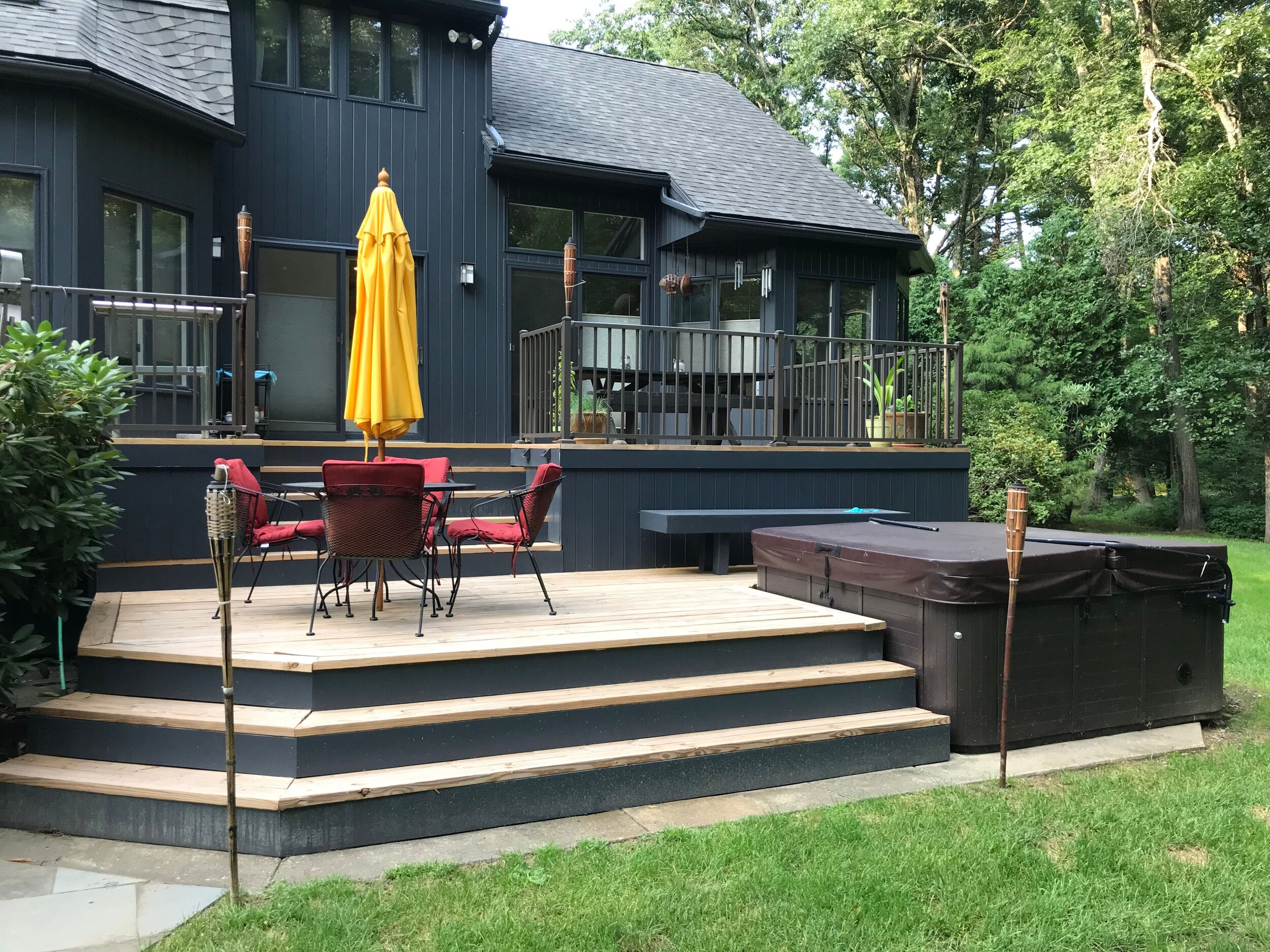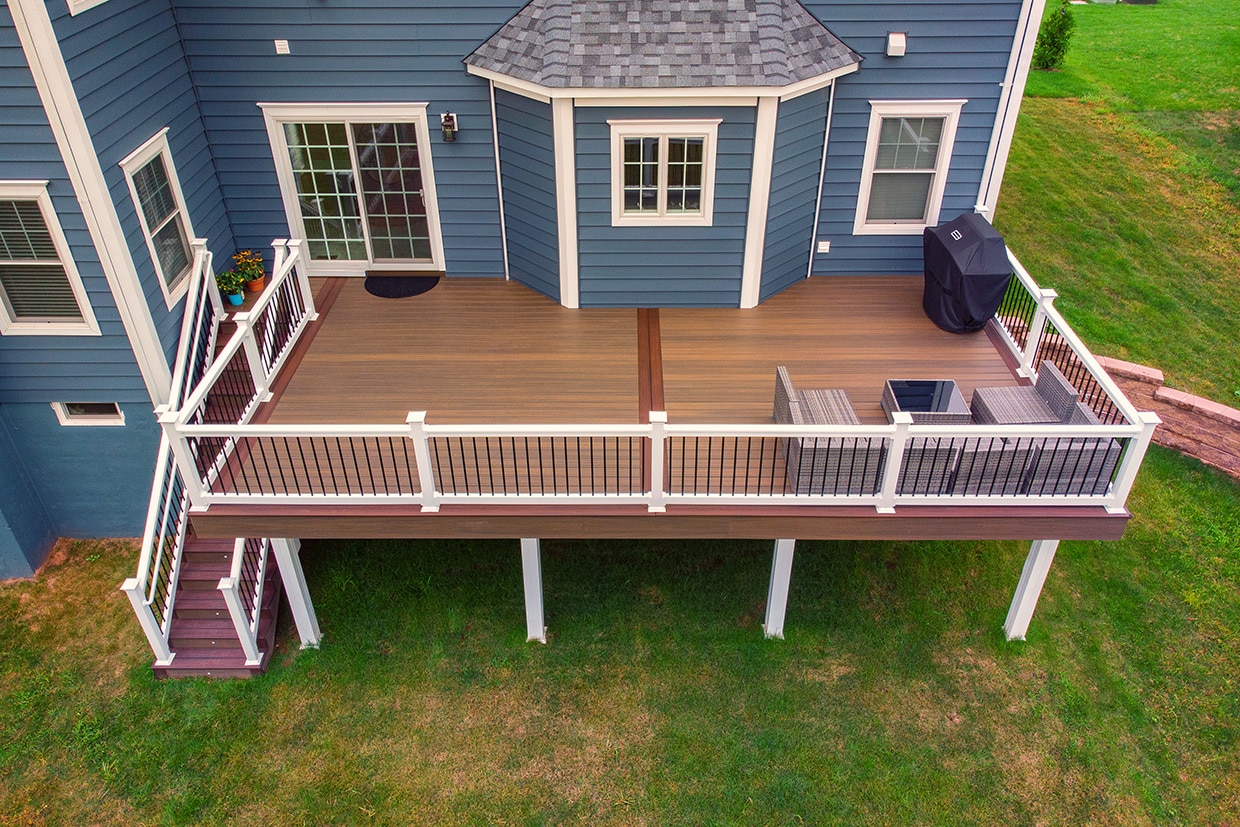Expert Tips on Picking the Right Deck Materials for Your Home
Choosing the perfect deck products for your home is a substantial decision that calls for careful factor to consider. The choice of materials not only impacts the appearances yet additionally the toughness and maintenance of your deck.
Aspects to Take Into Consideration Prior To Selecting
Before selecting deck materials for your home, it is vital to meticulously review a number of essential elements that will affect your choice. The first element to consider is the environment in which you stay. Various products stand up to varying weather conditions differently. For example, if you stay in a region with high humidity or frequent rainfall, you may wish to choose products like composite decking that are more immune to moisture and mold and mildew. On the various other hand, if you live in a hot and completely dry climate, materials like redwood or cedar might be suitable due to their natural resistance to decay and pests.
Alternatively, composite decking requires very little upkeep, generally just needing periodic cleansing to protect its appearance. Recognizing your determination to invest time and effort into preserving your deck is vital for making a choice that lines up with your way of living and preferences.

Advantages And Disadvantages of Timber Decks
Taking into consideration the various factors that affect the selection of deck products, it is vital to consider the benefits and negative aspects of timber decks. Timber decks offer a conventional and natural appearance that many property owners like. They can be tarnished or repainted to match the aesthetic of your home and are relatively very easy to function with for DIY projects. In addition, timber is a renewable source, making it an eco-friendly option.
Nevertheless, timber decks require normal maintenance, such as staining or securing, to stop rot, degeneration, and insect infestations - Trex Decking. They are additionally vulnerable to warping, splintering, and fading due to direct exposure to the aspects. In areas with high humidity or severe climate condition, timber decks may require more regular maintenance. Moreover, timber decks often tend to have a much shorter life expectancy contrasted to various other decking products like composite or PVC.
Exploring Composite Decking Options
When examining outdoor decking materials for your home, checking out composite options provides a sturdy and low-maintenance option to standard timber decks. Compound decking is a blend of wood fibers and recycled plastic, designed to mimic the look of wood while providing a variety of benefits. One substantial benefit of composite decking is its toughness; it is immune to rot, warping, splintering, and bug damages, making it a long-lasting choice for your outdoor space.
Along with its toughness, composite outdoor decking requires minimal upkeep compared to wood decks. You will not need to tarnish, seal, or sand composite boards consistently, conserving you time and initiative in the long run - Trex Decking. Composite outdoor decking is likewise available in a selection of designs and colors, allowing you pop over to this web-site to personalize your deck to suit your visual preferences
Additionally, composite decking is eco-friendly as it is frequently made from recycled products, lowering the demand for brand-new wood. While the initial expense of composite decking might be greater than wood, the lasting savings on upkeep and replacement make it a cost-efficient choice for numerous homeowners seeking a attractive and trusted decking product.
Understanding PVC and Vinyl Decking
PVC and plastic decking are contemporary choices to traditional wood decking materials, providing special benefits for house owners looking for a low-maintenance and long lasting option for their outdoor spaces. PVC, or polyvinyl chloride, decking is made from 100% synthetic materials, offering outstanding resistance to moisture, fading, and insect damage.
Similarly, plastic outdoor decking is likewise an artificial material known for its longevity and reduced upkeep demands. Vinyl decking is normally made from PVC, using comparable benefits such as resistance to mold and mildew, mildew, and rot. It is additionally a cost-effective option in the lengthy run, as it does not need staining, securing, or painting like wood decking does. Homeowners can appreciate their outside spaces without the fear of considerable maintenance with PVC and plastic decking options.
Contrasting Deck Product Costs
To make enlightened decisions about outdoor decking products, assessing and comparing the prices of different alternatives is crucial for house owners looking to spend wisely in their outside areas. When contrasting deck material expenses, elements such as first costs, upkeep requirements, and durability must be thought about.

Compound decking, made from a blend of wood fibers and recycled plastics, has a tendency to have a greater ahead of time cost however reduced upkeep demands. This can lead to lasting price savings despite the preliminary financial investment.
PVC and plastic outdoor decking, while long lasting and low-maintenance, are among the more expensive options. Their durability and very little maintenance demands can make them cost-effective options in the lengthy run.

Verdict
Finally, picking the ideal deck products for your home entails cautious consideration of elements such as price, resilience, and upkeep. Timber decks use a traditional look but require normal upkeep, while composite outdoor decking supplies a low-maintenance you could check here option with a range of designs. PVC and vinyl decking are sturdy and simple to maintain yet may come at a higher expense. Ultimately, considering the advantages and disadvantages of each material will certainly help you make an educated choice for your exterior space.
Thinking about the numerous factors that affect the selection of deck products, it is necessary to consider the advantages and downsides of timber decks - Trex Decking. Wood decks tend to have a shorter life-span contrasted to various other outdoor decking products like composite or PVC
When reviewing outdoor decking materials for your home, checking out composite choices offers a durable and low-maintenance option to conventional timber decks.PVC and plastic outdoor decking are contemporary choices to typical timber outdoor decking materials, providing distinct benefits for house owners looking for a sturdy and low-maintenance alternative for their outdoor spaces. Wood decks provide a traditional look but require regular maintenance, while composite outdoor decking gives a low-maintenance alternative with an array of styles.